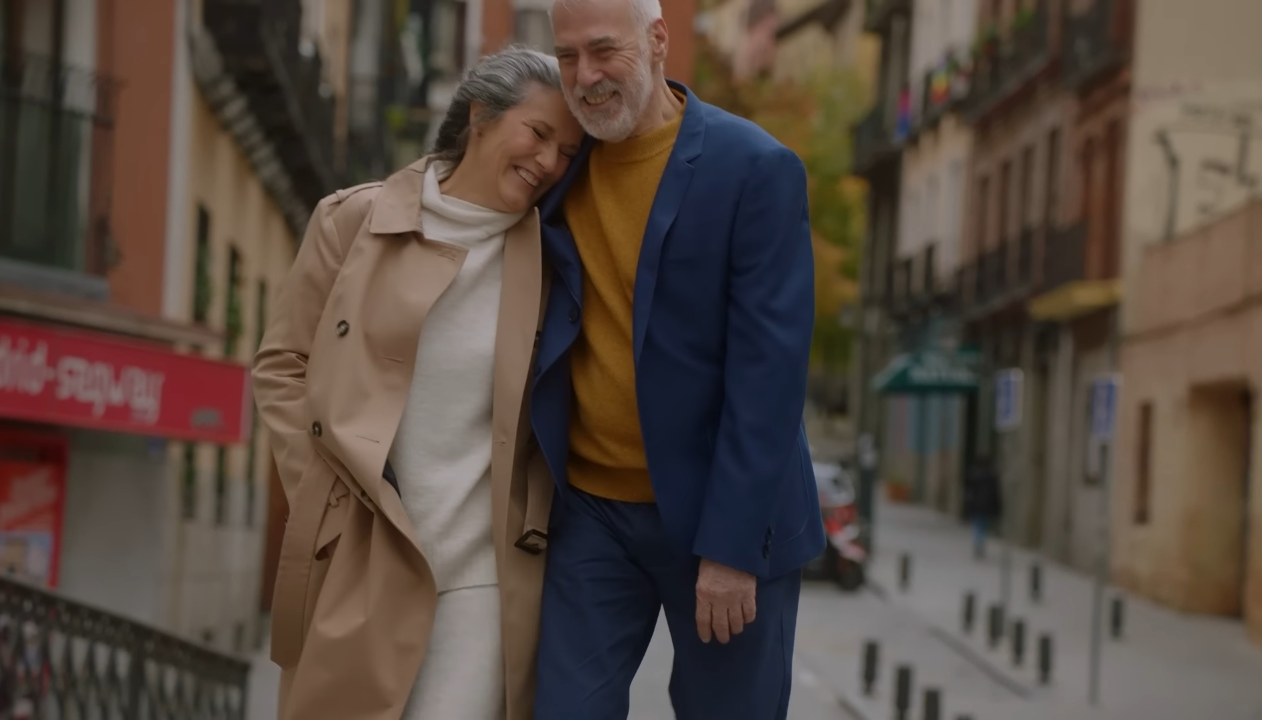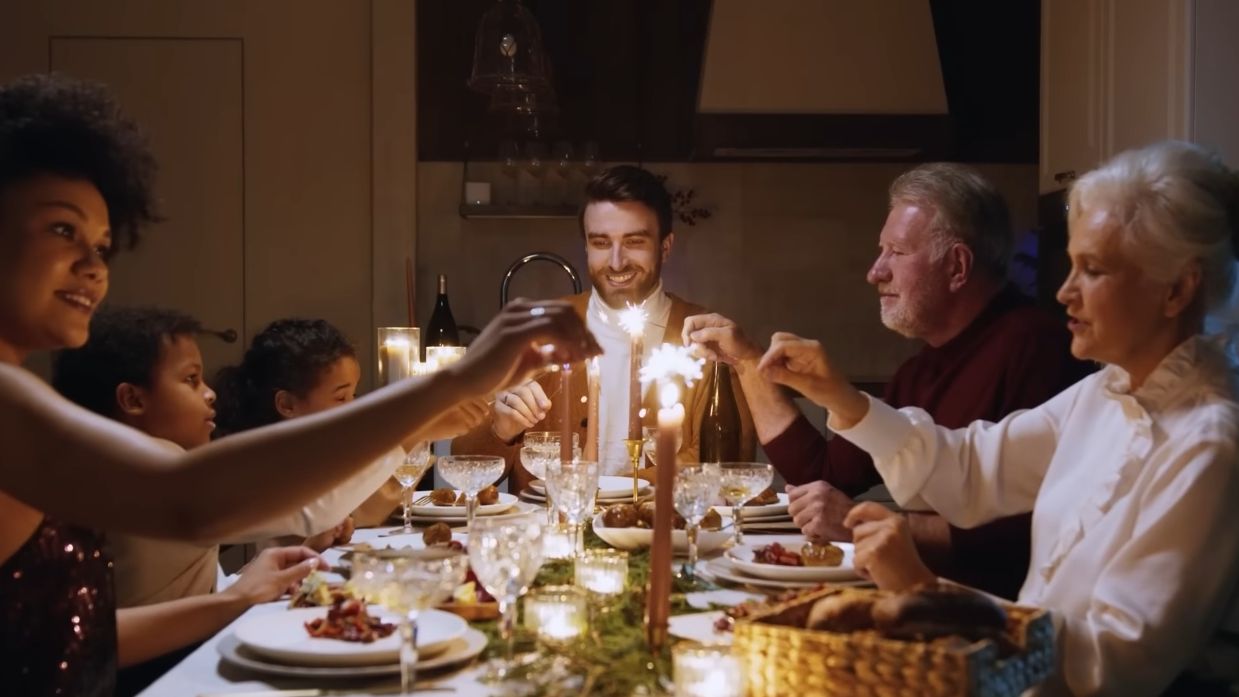1. Love:

Humans evolved and acquired this intimate emotion, the ability to love others, because it helps the human species survive. This is not a romantic or interesting reason, but it is the truth. Our human species does not have giant fangs or claws, nor the terrifying strength of gorillas. Instead, we form bonds with each other into communities and families, where we feel comfortable cooperating with each other.
Evolution has shown that these communities and families are much more effective in helping humans survive than giant fangs and claws. And so, humans have become the dominant species on the planet.
Are there any true facts about love that you don't know? More precisely, love in general and romantic love in particular, if looked at objectively, can shatter our dreams in what way?
Romantic love is not as beautiful as you think. Going back to the truths about love, do you know that human instinct helps us become sincere with those who are sincere with us? And this is love: an irrational sincerity towards someone, to the point where we are willing to do bad things or even sacrifice for that person. It may sound crazy, but this symbiotic emotion has helped humans survive strongly enough to resist ferocious flesh-eating tigers, thrive all over the earth, and invent Netflix. Not the truth about love, but take a moment to silently thank the process of evolution for giving birth to Netflix.
Greek philosopher Plato said that the highest form of love is the love without desire, without romance; it is brotherly love. Plato argued that romance and passionate desire often make us do foolish, unimaginable things, and then regret them. The non-romantic love between family members or friends is the pinnacle of human virtue. Indeed, Plato and many ancient philosophers were very skeptical of romantic love, if not extremely fearful. Plato was ahead of his time and had true insights into many things. Therefore, the non-romantic love he mentioned is called "platonic love" by people, specifically a kind of love in which sexual desire or romantic characteristics do not exist.
In most of human history, the romantic love that young people dream of today is considered a pathology. Just think about it, you will see that it is true: romantic love often makes people, especially young people, do foolish things. Believe me, on this point, the translator Less also has some words to share about his own experience. Back in college, I and my then long-distance girlfriend loved each other. Once I told her that I wanted to see her, she also said she wanted to see me. So I bought a train ticket, left Hanoi on Friday afternoon to meet her on Saturday morning and chat for a few hours. Then, on Saturday afternoon, I got back on the train and returned to Hanoi on Sunday afternoon. Oh, I should also mention that the cost of that round-trip train ticket had vaporized half of the money I was given for that month. It sounds romantic, doesn't it? But now when I look back, I feel really foolish.
2. Conversation:

Returning, precisely because of the weakness in making important decisions, ancient people did not value the usefulness of romantic love. Instead, some ancient cultures saw it as a kind of disease that they all had to go through, like smallpox. The truth is that stories like The Iliad or Romeo and Juliet are not meant to glorify love, but to warn about the negative consequences of love, about how love can destroy everything.
You see, in most of human history, people did not marry because they loved each other. Emotions had no place in that world. You wonder why? Because what does love have to do with it, go out there and plow the fields and herd the cattle. If you don't work, you won't have land to eat. No one has time for romance, and certainly no one wants to endure the consequences of the foolishness that arises from romantic love. There are too many things between the line of life and death. Marriage was arranged by families, not because they liked each other, of course, not because they loved each other.
Romantic relationships are not as beautiful as you think. Marriage is often just an economic arrangement designed to promote the survival and prosperity of both families. So, if a young man feels madly in love and wants to elope with the milkmaid at the farm next door, that is not just a common inconvenience but a direct threat to the survival of the community. Ancient societies considered this action so dangerous that they turned those young men into eunuchs to avoid thinking about this issue. This practice continued until the industrial age. When people started working in city centers and factories, their income was no longer tied to the land. Their economic future was the same, they no longer depended on the family to make money, no longer had to rely on inheritance or family relationships as in ancient societies. Economic and political factors in marriages gradually lost their place.
Now, you can start a YouTube project, self-study easily, or collaborate with talents in fields such as scriptwriting, design, or filmmaking. In the past, especially when YouTube was just introduced and imported into Vietnam, things were not easy at all. Early creators had to put in more effort, learn more, and persevere longer to create quality products. In this edition of The Creator, let's listen to the story of one of the early creators in Vietnam, Mr. Spider From Du. Interestingly, from a creator, he has now become a partner manager at YouTube Google. This position allows him to provide advice, guidance, and support to other creators. His decade-long journey has begun, going through challenges and bringing lessons.
3. Sharing:

He shared that when he goes out, he doesn't want people to ask about his experience working at Google. This experience has helped him make judgments about the creative aspect of YouTube content in Vietnam. His biggest desire is for society to recognize the profession of YouTuber. Without further ado, let's jump into the conversation. Click the Subscribe button to have a deep conversation with us.
The new economic reality in the 19th century, combined with ideas about human rights and the pursuit of happiness from the Enlightenment era, gave birth to romanticism. Suddenly, human emotions became important. In the 19th century, when expressing love became common, the new ideal was not just to marry for love but also to love to live happily ever after. This eternal happiness ideal only appeared 150 years ago.
In the 20th century, amidst world wars and genocides, was the era of Hollywood and advertising companies. They seized the eternal happiness ideal and exploited it for the next 100 years. The romance we value is a new invention, mainly promoted by businessmen who know that you are willing to spend money to buy a movie ticket or an expensive piece of jewelry. As Don Draper once said, "what you call love was invented by people like me to sell everything." Romance is a great product to sell. We like to see heroes save beauties and live happily ever after, so advertising programs in the 20th century fully exploited it.
But romantic love, as well as love in general, is much more complex than what we see in Hollywood movies or jewelry advertisements. Love can be troublesome and boring at times, even annoying or painful. Sometimes love requires monthly, yearly, or even lifelong efforts. We can't hear things like that from what we see every day. The dark sides of love are not interesting at all, and they cannot be sold. The harsh truth about love is that a real relationship only truly happens when the Hollywood curtain closes. A real relationship includes all the boring, dull, unattractive things that not everyone sees or values. Like most things in the media, love in modern culture only appears with thrilling elements.
4. Relationships:

All the complexities of a relationship are hidden to make room for sensational headlines like "boyfriend goes on duty, girlfriend has a new lover" or "wife catches husband cheating at a motel," or "boy dates older sister to marry younger sister." At the same time, there is no shortage of "happily ever after" stories like the touching love of two people at opposite ends of the world. We are often bombarded with such messages to the point where we think that the excitement or drama of love is love itself. When we are immersed in romance, we cannot imagine that a couple's love can change. We do not see the weaknesses or failures of the person we love; all we see is that love can do everything. That is not love, it is just an illusion. And because it is an illusion, things often do not end well.
Loving someone does not mean we should be with that person. We can totally love someone who does not treat us well, does not respect us, makes us feel worse, or even poses a danger to us. We can also love someone with different lifestyles or goals, or simply walk different paths. Loving someone that makes us lose true happiness is why parents often arrange marriages for their children throughout history, because they have a more objective view. But in recent centuries, when young people can choose their own partners, this is good but it makes them overestimate the miraculous ability of love to solve all problems. This is the definition of an unhealthy relationship.
People in a relationship do not love each other because of their nature but because they hope that love will fill the voids in their souls. The more personal freedom, responsibility demands, and self-understanding, the greater. We have only just begun to understand these responsibilities after 100 years. People in unhealthy relationships do not truly love each other, they love the idea of each other and the imaginary world in their heads. Instead of eliminating that imaginary world, they try to make their lover a part of that world because they don't know how or are afraid to reveal weaknesses to love in a healthy way.
Centuries ago, people hated romantic love because they feared it would influence others' decisions. When no longer dependent on agriculture and parents' opinions, people idealized love and hoped it would solve all problems. But now, people are beginning to realize that, although love is wonderful, love is not everything. Love does not create relationships but is the result of relationships. Love should not define life but is a byproduct of life. Someone who makes you feel more worthwhile does not mean you have to live for that person.
The liberation of romantic love has brought wonderful experiences but also requires a truthful and realistic view of relationships to accept living together in a world full of pain. Some people say that in the era of Tinder and short dates, romance is dead. But in reality, romance is not dead, it just hides in a safe place until two people trust and feel comfortable with each other before falling madly in love. This is probably good.
Romantic love is not wrong and should not be excluded, but compared to simple love, romantic love is dangerous and needs to be handled with care. Romantic love is not everything and should not be something that people live or die for. It can make us happy, but do not let blind love lead to regrets later on.
